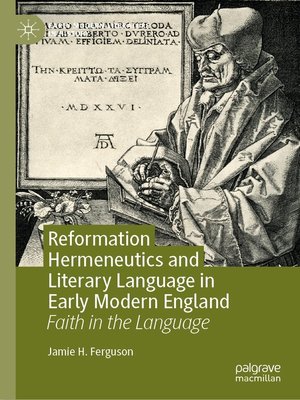Reformation Hermeneutics and Literary Language in Early Modern England
ebook ∣ Faith in the Language · Early Modern Literature in History
By Jamie H. Ferguson

Sign up to save your library
With an OverDrive account, you can save your favorite libraries for at-a-glance information about availability. Find out more about OverDrive accounts.
Find this title in Libby, the library reading app by OverDrive.



Search for a digital library with this title
Title found at these libraries:
| Library Name | Distance |
|---|---|
| Loading... |
The expressive and literary capacities of post-Reformation English were largely shaped in response to the Bible. Faith in the Language examines the convergence of biblical interpretation and English literature, from William Tyndale to John Donne, and argues that the groundwork for a newly authoritative literary tradition in early modern England is laid in the discourse of biblical hermeneutics. The period 1525-1611 witnessed a proliferation of English biblical versions, provoking a century-long debate about how and whether the Bible should be rendered in English. These public, indeed institutional accounts of biblical English changed the language: questions about the relation between Scripture and exegetical tradition that shaped post-Reformation hermeneutics bore strange fruit in secular literature that defined itself through varying forms of autonomy vis-a-vis prior tradition.







